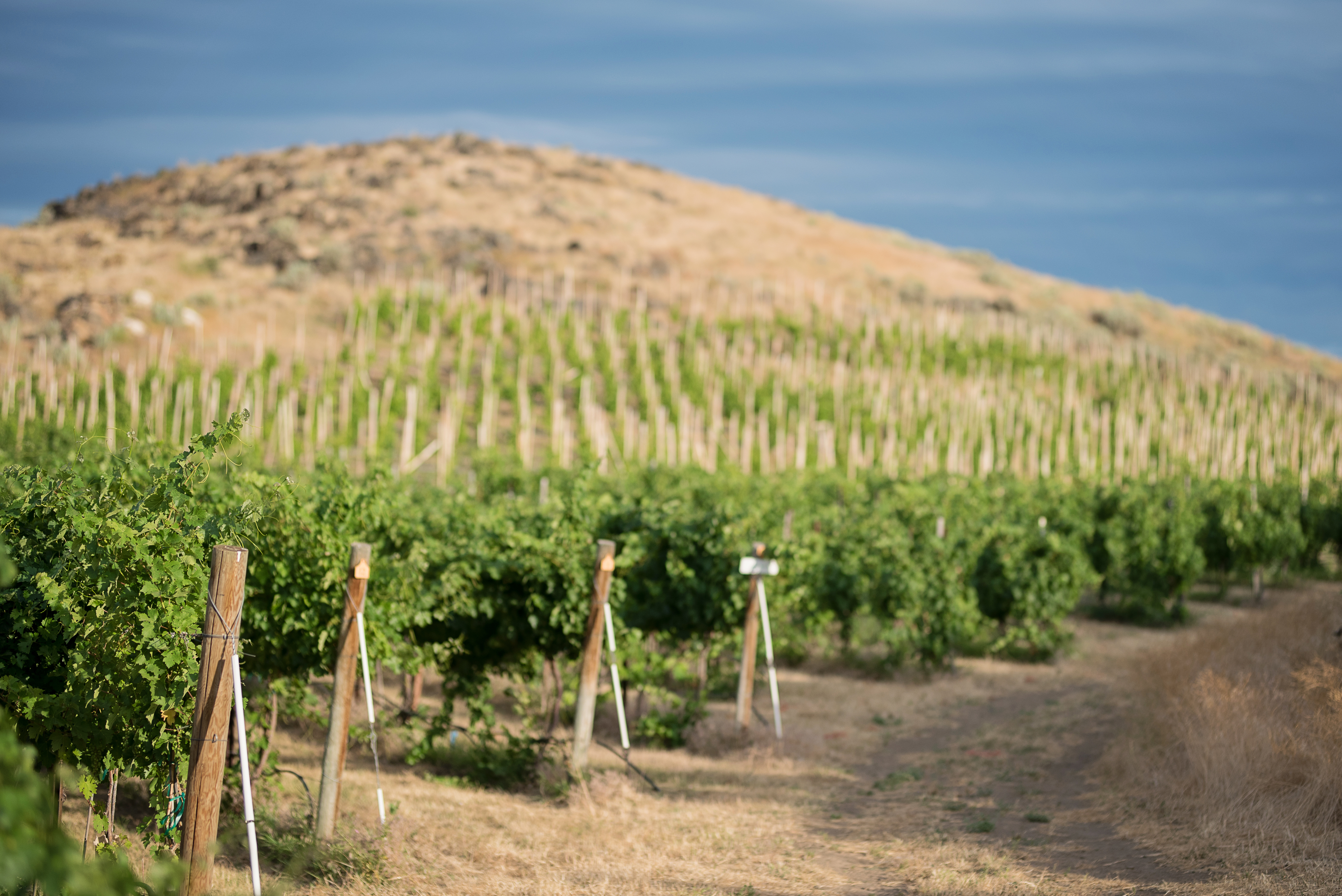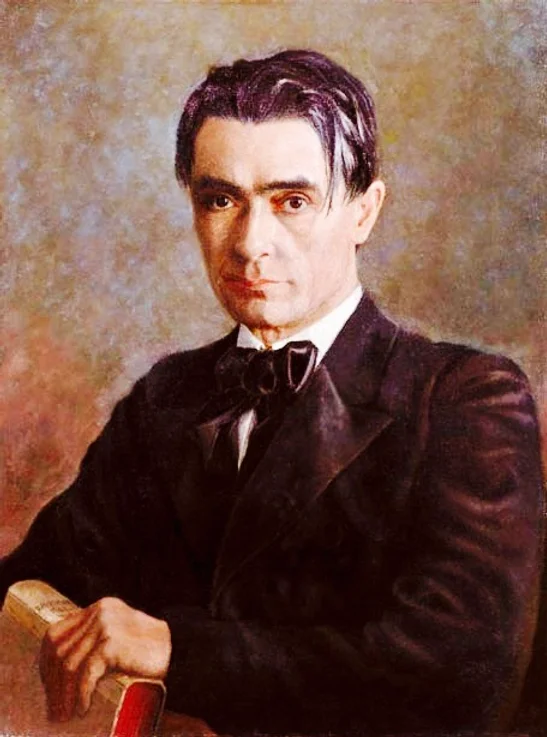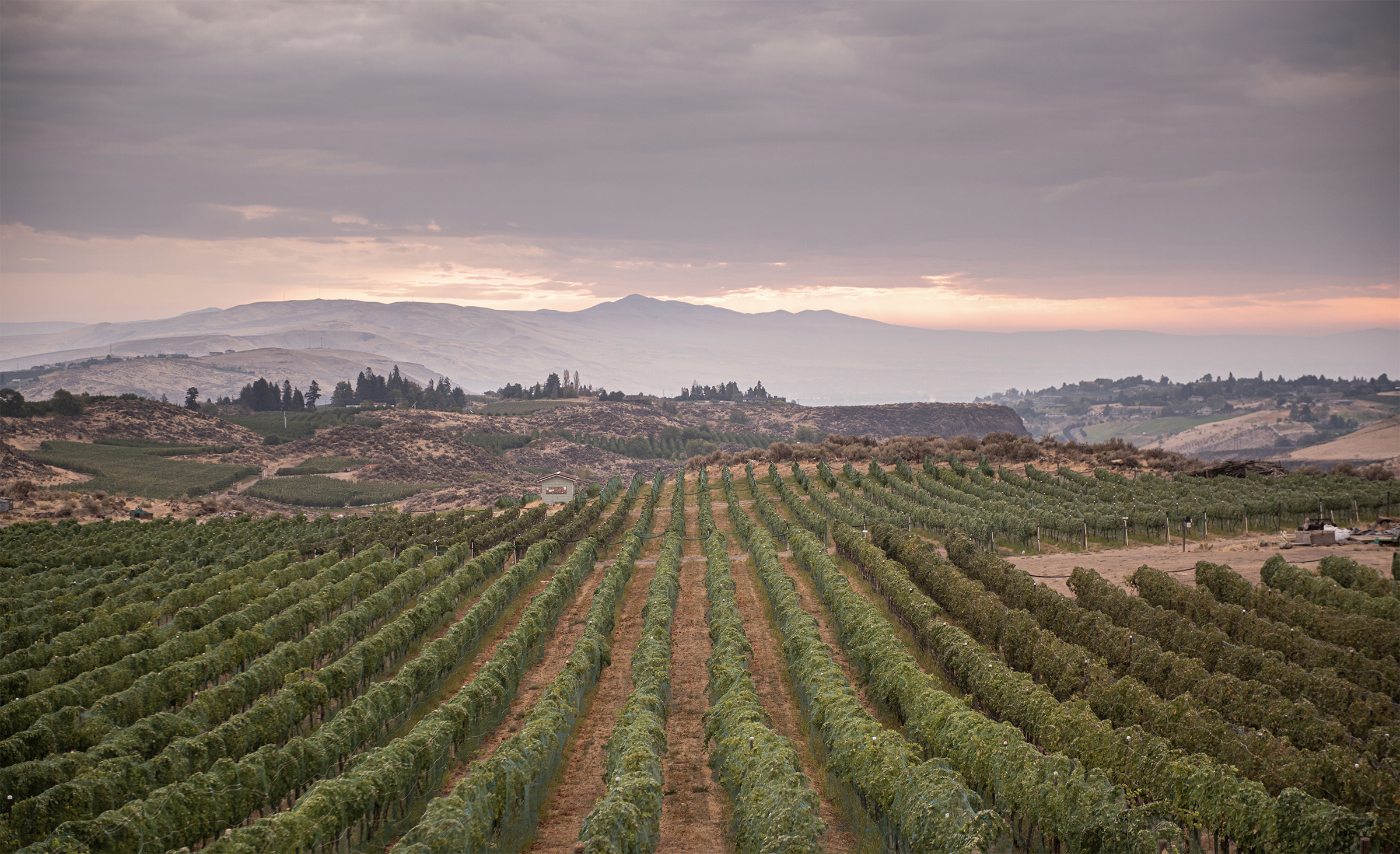
Wilridge is the most “sustainable” Vineyard, Winery & Distillery in Washington State. However, we do not use the term “sustainable” on our wine labels because we consider the term to be greenwashing. While certified sustainable, a vineyard may still spray all sorts of toxic chemical herbicides, pesticides and fungicides.
Biodynamic Agriculture
Biodynamic Agriculture, rooted in the scientific and spiritual insights of Wolfgang Goethe and Rudolf Steiner. Transcending the mechanistic approach of conventional farming, Biodynamic Agriculture is a holistic philosophy that views the vineyard not merely as a site of agricultural production but as a living organism intrinsically connected to natural cycles. The decision to embrace Biodynamic practices is not just a commitment to sustainability; it’s a conscious choice to engage in a dynamic and harmonious dialogue with the rhythms of the earth.
Wilridge’s journey into Biodynamic viticulture unfolds as a poetic narrative where the celestial and earthly forces converge to shape the essence of the vineyard. The lunar and planetary influences guide not just the planting and harvesting of grapes but orchestrate a symphony of cosmic energies that infuse the wines with a unique and profound character. The vineyard becomes a living canvas, painted with the strokes of celestial rhythms.
Within the Biodynamic framework, the decision to forgo conventional chemical interventions and embrace manual labor weed control takes on a deeper significance. It becomes a spiritual practice, a conscious rejection of chemical intervention in favor of a more intimate connection with the land. Hand weeding, absent of herbicides like Roundup, transforms into a ritualistic celebration of the earth’s intrinsic vitality, reaffirming that the labor-intensive approach is not a compromise but a dedication to environmental harmony and quality in our wine and spirit production.
“Look for wines that are declared on the label to be either Organically or Biodynamically cultivated. Why? Because, as a cohort, Organic and Biodynamic producers tend to be more rigorous and more committed to making genuinely fine wine. It’s a useful shorthand.”
–Wine Spectator
Who was Rudolf Steiner
Rudolf Steiner (1861-1925), founder of the Biodynamic approach to agriculture, was a highly trained scientist and respected philosopher in his time, who later in his life came to prominence for his spiritual-scientific approach to knowledge called “anthroposophy.” Long before many of his contemporaries, Steiner came to the conclusion that western civilization would gradually bring destruction to itself and the earth if it did not begin to develop an objective understanding of the spiritual world and its interrelationship with the physical world. Steiner’s spiritual-scientific methods and insights have given birth to practical holistic innovations in many fields, including education, banking, medicine, psychology, the arts and, not least, agriculture.
In the early 1900s, a highly mechanistic view of nature was beginning to take hold in agriculture, which led to the development and use of synthetically produced fertilizers and pesticides. As they adopted these chemical inputs, farmers quickly began noticing declines in the health and fertility of their soil, plants, and animals. A number of farmers who were familiar with Steiner’s work to renew medicine, education, economics, and other aspects of society asked if he could provide some insights into how they could renew the health and vitality of their farms.
After many such requests, in June 1924, Steiner finally held an “Agriculture Course” with many of these farmers in Koberwitz, a small village which was then in Germany but is now Poland. The eight lectures and five discussions of that course have been transcribed in the book Agriculture (link is external) and form the basis of the biodynamic method. Steiner was one of the first public figures to warn that the widespread use of chemical fertilizers would lead to the decline of soil, plant and animal health and the subsequent devitalization of food.
He was also the first to bring the perspective of the farm as a single, self-sustaining organism that thrives through biodiversity, the integration of crops and livestock and the creation of a closed-loop system of fertility. Steiner also brought forth a unique and comprehensive approach to soil, plant, animal and human health that recognizes the importance of the healthy interplay of cosmic and earthly influences. With this knowledge, he developed a set of homeopathic preparations used by biodynamic farmers on soil, compost and plants that help build up the farm’s innate immune system and vital forces. In the 1980s, biodynamic farmers in the northeast U.S. used Steiner’s economic ideas to pioneer the concept of community supported agriculture (CSA), which has since been adopted by thousands of farms across North America.
By applying these diverse ideas and methods, biodynamic farmers have established a worldwide reputation for creating socially responsible farms of extraordinary health and beauty and for producing organic products of the highest quality and flavor.
Leaving an indelible mark on the landscape of tomorrow.

Join 900+ subscribers
Stay in the loop with everything you need to know.

